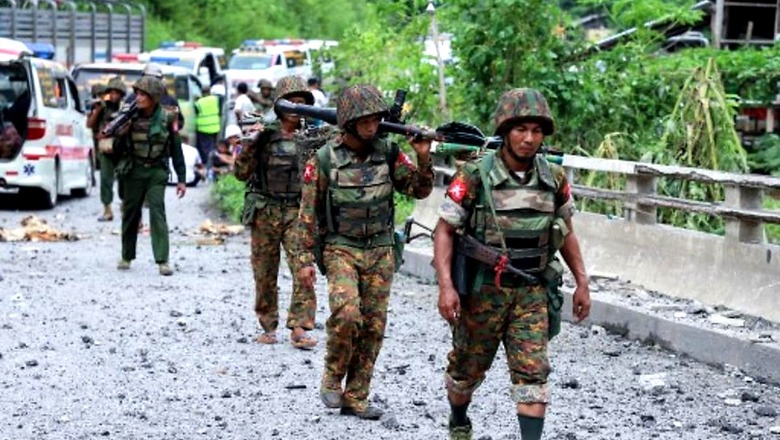
views
The two soldiers confess their crimes in a monotone, a few blinks of the eye their only betrayal of emotion: executions, mass burials, village obliterations and rape.
The August 2017 order from his commanding officer was clear, Pvt. Myo Win Tun said in video testimony. “Shoot all you see and all you hear.”
He said he obeyed, taking part in the massacre of 30 Rohingya Muslims and burying them in a mass grave near a cell tower and a military base.
Around the same time, in a neighboring township, Pvt. Zaw Naing Tun said he and his comrades in another battalion followed a nearly identical directive from his superior: “Kill all you see, whether children or adults.”
“We wiped out about 20 villages,” Zaw Naing Tun said, adding that he, too, dumped bodies in a mass grave.
The video testimony from the two soldiers, which was shared with international prosecutors, is the first time that members of the Tatmadaw, as Myanmar’s military is known, have openly confessed to taking part in what U.N. officials say was a genocidal campaign against the country’s Rohingya Muslim minority.
On Monday, the two men, who fled Myanmar last month, were transported to The Hague, where the International Criminal Court has opened a case examining whether Tatmadaw leaders committed large-scale crimes against the Rohingya.
The Myanmar government has denied any orchestrated campaign against the Rohingya.
Only a few Tatmadaw soldiers have been punished, with brief prison terms, for what the military says were isolated missteps in a couple of villages.
It is not clear what will happen to the two men, who are not under arrest but were effectively placed in the custody of the International Criminal Court on Monday. They could provide testimony in court proceedings and be put in witness protection. They could be tried. The court’s office of the prosecutor refused to publicly comment on an ongoing case.
The soldiers’ accounts will also add weight to the separate case at the International Court of Justice, where Myanmar is being accused of trying to “destroy the Rohingya as a group, in whole or in part, by the use of mass murder, rape and other forms of sexual violence, as well as the systematic destruction by fire of their villages.”
Hannah Beech, Saw Nang and Marlise Simons c.2020 The New York Times Company



















Comments
0 comment